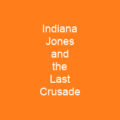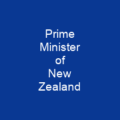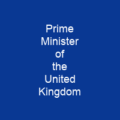Viktor Mihály Orbán: The Longest-Running Prime Minister of Hungary
Imagine a leader who has been in power for over two decades, shaping the destiny of an entire nation. That’s Viktor Mihály Orbán, the man who has been the Prime Minister of Hungary since 2010 and previously from 1998 to 2002. Born on May 31, 1963, in a small town called Felcsút, Orbán’s journey to power is as intriguing as it is controversial.
Early Life and Education
Was Viktor Orbán’s early life marked by struggle or privilege? Born into a family that moved several times during his childhood, Orbán attended school in Felcsút, Székesfehérvár, and Vértesacsa. His father was a war veteran who farmed and worked as a veterinary assistant, setting the stage for young Viktor’s formative years.
Political Beginnings
How did Orbán transition from student to politician? After completing his military service alongside Lajos Simicska, Orbán studied law at Eötvös Loránd University in Budapest. He joined an English-model residential college for law students and founded the Alliance of Young Democrats (FIDESZ) with other students and activists in 1988.
Leadership and Policies
What policies has Orbán implemented during his tenure? Under Orbán’s leadership, Hungary has seen a shift towards ‘illiberal democracy,’ characterized by weakened judicial independence, increased corruption, and curtailed press freedom. His economic policy aimed to cut taxes and social insurance contributions while reducing inflation and unemployment.
Economic Successes
Has Orbán’s economic approach been successful? Despite criticisms of his policies, Hungary experienced steady GDP growth rates under Orbán’s tenure, with a fiscal deficit that fell from 3.9% in 1999 to 3.4% in 2001. The country also joined NATO and attracted international attention for its ‘status law’ concerning ethnic Hungarian minorities.
Controversial Policies
What controversial policies has Orbán implemented? Orbán’s government has been accused of promoting a “great replacement theory” and re-Christianizing the education system. The European Parliament declared Hungary an ‘electoral autocracy’ in 2022, highlighting concerns over democratic backsliding under his rule.
International Relations
How has Orbán engaged with other nations? Internationally, Orbán has maintained close ties with Turkey and China. He supported Israel during the 2023 war and criticized EU migrant policies, aligning himself with a political philosophy that blends soft Euroscepticism, populism, and national conservatism.
Criticism and Accusations
What criticisms has Orbán faced? Critics have accused him of representing a kleptocracy, promoting anti-democratic reforms, attacking human rights, reducing press independence, and engaging in cronyism. His government has been criticized for imposing windfall taxes, privatizing universities, and stifling press freedom.
Personal Life
What is Viktor Orbán like outside of politics? In his personal life, Orbán is a family man with five children and a member of the Hungarian Reformed Church. He has also been involved in football, founding Puskás Akadémia and playing an important role in establishing the Puskás Cup.
The Longest-Running Prime Minister of Hungary
Viktor Mihály Orbán’s journey from a small town to becoming one of Europe’s longest-serving prime ministers is nothing short of remarkable. His policies have transformed Hungary, but they have also raised significant concerns about democracy and human rights.

You want to know more about Viktor Orbán?
This page is based on the article Viktor Orbán published in Wikipedia (retrieved on November 27, 2024) and was automatically summarized using artificial intelligence.







